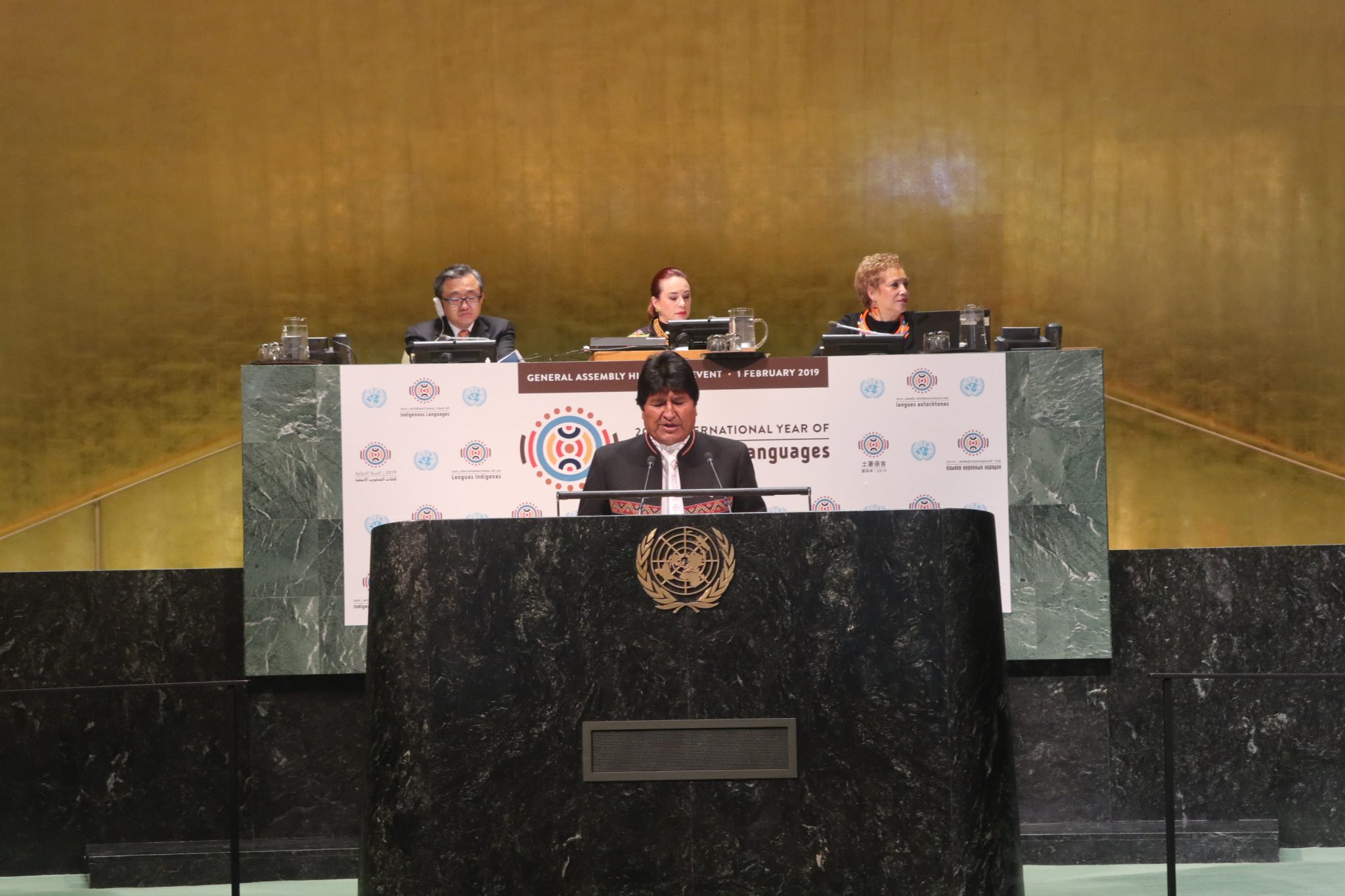In September 2007, the General Assembly, through its resolution 61/295, adopted the United Nations Declaration on the Rights of Indigenous Peoples . The Declaration provides a comprehensive framework of minimum standards for economic, social and cultural well-being and rights of the world’s indigenous peoples. The Declaration recognizes the rights of indigenous peoples to revitalize, use, protect and preserve and transmit their histories, languages, and oral traditions to future generations. It further granted the right to indigenous peoples to establish their own media and educational systems in their own languages.
The outcome document of the 2014 high-level plenary meeting of the General Assembly known as the World Conference on Indigenous Peoples (resolution 69/2) reiterated the important and continuing role of the United Nations in promoting and protecting the rights of indigenous peoples. Member States committed to developing, in consultation with indigenous peoples, policies, programmes and resources to preserve and promote, among other things, the indigenous languages.
In its resolution 71/178 of 19 December 2016, the General Assembly proclaimed the year 2019 as the International Year of Indigenous Languages. Further, in its resolution 73/156 of 17 December 2018, the General Assembly requested the President of the General Assembly to support initiatives relevant to the successful celebration of the International Year, within existing resources. On 19 December 2018, the Permanent Representative of Mexico, on behalf of Group of Friends of Indigenous Peoples, addressed a letter to the President of the General Assembly requesting the President to convene a High-Level Informal plenary meeting for the global launch of the International Year of Indigenous Languages. The President of the General scheduled the meeting to take place on 1 February 2019 in the General Assembly Hall.
In the lead up to the 2019 International Year of Indigenous Languages, the United Nations Educational, Scientific and Cultural Organization played a leading role, including by developing an action plan and establishing a steering committee for organizing the International Year, in consultation and cooperation with Member States, the Permanent Forum on Indigenous Issues, the Special Rapporteur on the Rights of Indigenous Peoples and the Expert Mechanism on the Rights of Indigenous Peoples, as well as indigenous peoples and a range of different stakeholders.
Indigenous languages represent complex systems of knowledge developed and accumulated over thousands of years. Each indigenous language represents a unique system and framework for understanding the world in its ecological, economic or sociocultural importance. Local languages are cultural treasure to communicate, share knowledge and promote local cultural specificities, customs and values.
The loss of an indigenous language can therefore mean the loss of vital knowledge, which could be harnessed for human improvement and sustainable development. Consequently, the disappearance of a language implies a considerable negative impact upon the indigenous culture concerned, as well as on global cultural diversity. Unique ways of knowing and experiencing the world may disappear forever. The issues around indigenous languages point to a significant cross-cutting pattern of disadvantages affecting a wide range of areas, including politics, law and justice, health, cultural practices and identities, the biosphere, access to information and communications.















